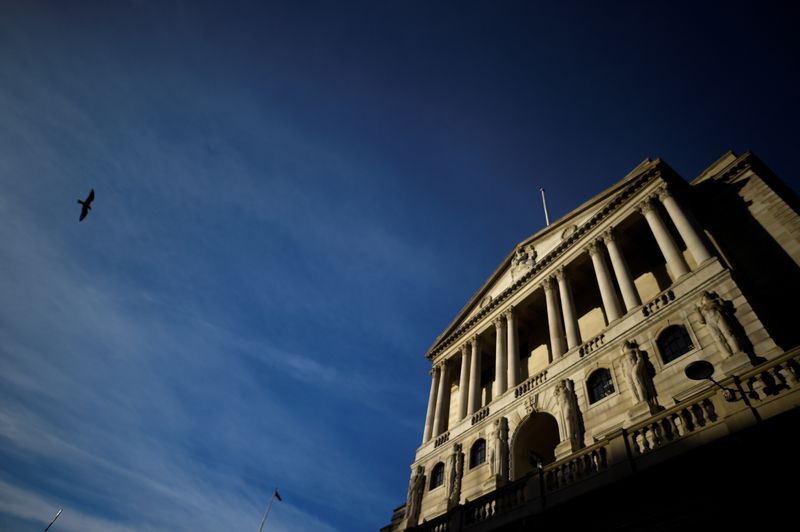By David Milliken and Huw Jones
LONDON (Reuters) - The Bank of England said on Monday it planned to tweak rules on the amount of capital that banks hold to allow them to lend more after an economic crisis.
The BoE said its plans would leave the average amount of capital that major lenders need to hold broadly unchanged, but would allow it to fluctuate more during the course of an economic cycle.
"By shifting the balance of capital requirements from minimum requirements that need to be held at all times toward buffers that can be drawn down as needed, these changes will mean banks will be more able to absorb losses while maintaining lending to the real economy through the cycle," the BoE said.
British lenders currently hold so-called Tier 1 capital equivalent to just under 14% of risk-weighted assets.
The BoE designates 1% of risk-weighted assets as a 'counter-cyclical capital buffer' (CCyB) which can be used to support lending in a downturn.
Under Monday's proposals, the size of this buffer during normal economic times would double to 2% by the end of 2020, and the BoE could reduce it to zero in a downturn, as currently.
This would allow major British lenders to absorb up to 23 billion pounds of losses in a downturn without restricting lending, supporting up to 500 billion pounds of loans to British homes and businesses - the equivalent of five years' borrowing.
Alongside this, the BoE said all of Britain's seven main lenders passed an annual test of their ability to withstand financial and economic shocks for the second year running.
The BoE tested HSBC, Barclays (LON:BARC), Lloyds Banking Group (LON:LLOY), Royal Bank of Scotland (LON:RBS), Standard Chartered (LON:STAN), Santander (MC:SAN) UK, and Nationwide Building Society for their ability to withstand financial market stresses.
The BoE said no lender failed to meet a firm-specific hurdle for the minimum amount of capital at the end of the test, in a repeat of last year's result on a test that was similar in toughness.
However, Barclays and Lloyds would need to convert some of their AT1 capital into equity during a stress scenario, the BoE said.
The BoE had already repeatedly said lenders hold enough capital to cope with the harshest form of Brexit, though a cliff-edge departure that would severely damage the economy now looks off the table for Jan. 31.
Britain’s newly re-elected government has a comfortable majority to push through a divorce settlement that will see Britain leave the bloc at the end of next month and enter an 11-month transition period until the end of 2020.
Banking analysts said next year's stress test will be closely watched as it will also include Virgin Money (LON:VM) UK, and 'ring-fenced' retail arms of banks will be stress tested separately in addition to a test at the group level.
